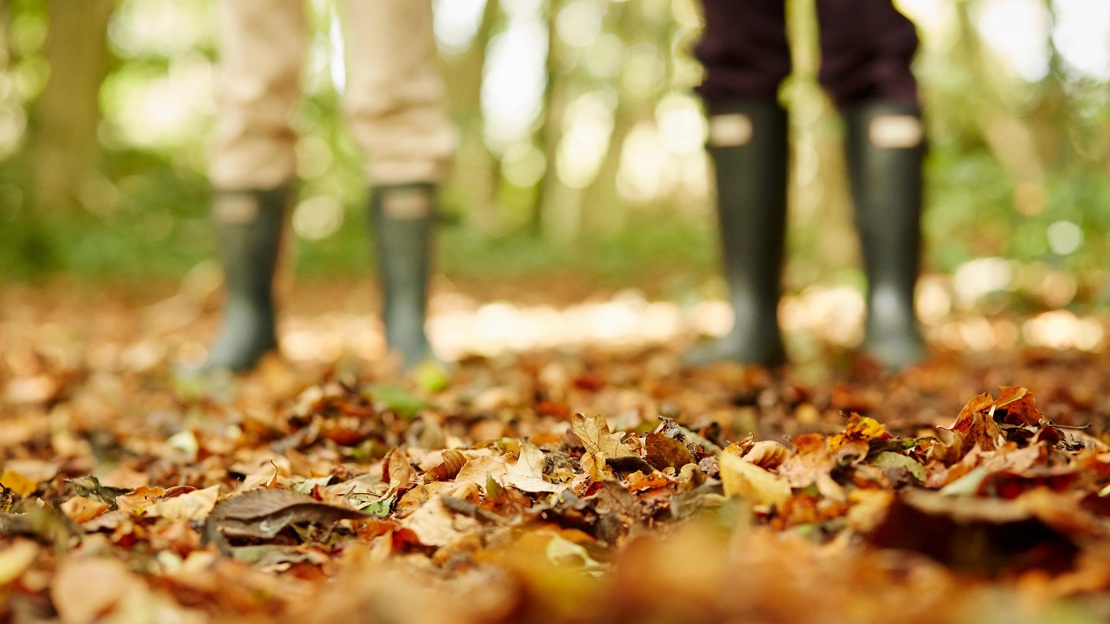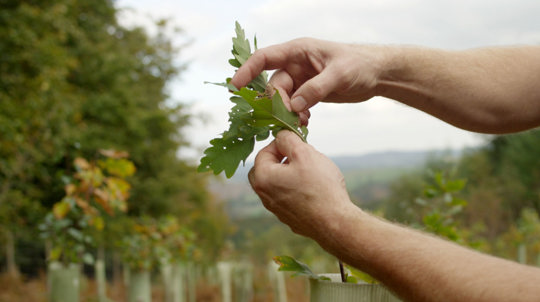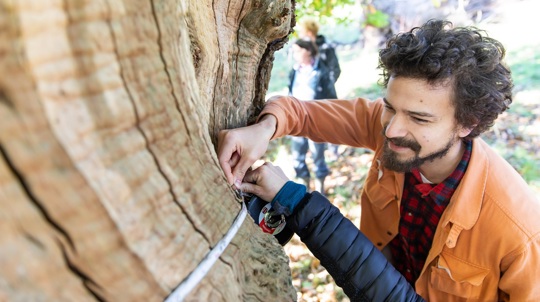Contact our team for more information about our conservation research programme and grant funding.
Who can apply for research funding?

We welcome applications for Small Research Grant funding from individual investigators and project teams with an interest in the conservation of UK woods and trees, who clearly demonstrate an ability to present and produce scientifically credible evidence.
At least one of the primary or co-investigators must be located at an established research institution (academic or otherwise).
We value knowledge and skills obtained through either academic or non-academic routes. Evidence for the suitability of the project team to carry out the project may be based on past experience and knowledge. However, we encourage Small Research Grants to be used as a way of building experience and knowledge. In this case, you’ll need to outline in your application how the project will enable the development of members of the project team.
Project team members
Primary investigator
The primary investigator will be responsible for leading the research project, submitting the grant application and will be the main point of contact with the Woodland Trust for the project duration. Previous experience as a primary investigator is not required to apply as a primary investigator. Funding will be paid to the primary investigator’s institution. Only one application may be submitted by a primary investigator per grant call.
Co-investigators
Co-investigators are part of the core project team and are required to take an active part in the research – such as overseeing, conducting, analysing or writing-up the research proposed. You may apply for Small Research Grant funding without co-investigators.
Project partners
Project partners may additionally support the project (in cash or kind) – such as in a funding or an advisory capacity. It is not essential to have project partners or additional sources of funding to apply for Small Research Grant funding.
Early career researchers
Small Research Grants offer an excellent opportunity for early career researchers who have been previously under-represented in applied conservation science to gain experience leading research projects. Small Research Grants can also fund pilot or proof-of-concept research, providing evidence to help early career researchers secure larger grants.
Diversity and inclusion
The Woodland Trust conservation research programme is committed to ensuring diversity and inclusivity in the ground-breaking woodland conservation research we fund. We recognise that the conservation sector lacks diversity. We are working on reducing barriers in the way that we award conservation research funding and making our funding application process more inclusive, to increase the diversity of scientists in the conservation sector.
We acknowledge that many groups of people, including women, LGBTQI+, Black, Asian and minority ethnic, and disabled people are under-represented and receive less research funding in the STEM (Science, Technology, Engineering and Mathematics) community. While applications for our research grants will be assessed solely on the criteria set out in the evaluation process, we would particularly welcome more applications from investigators who identify as members of these groups, to redress this imbalance.
Our diversity and inclusion statement outlines our commitment across all our work.




